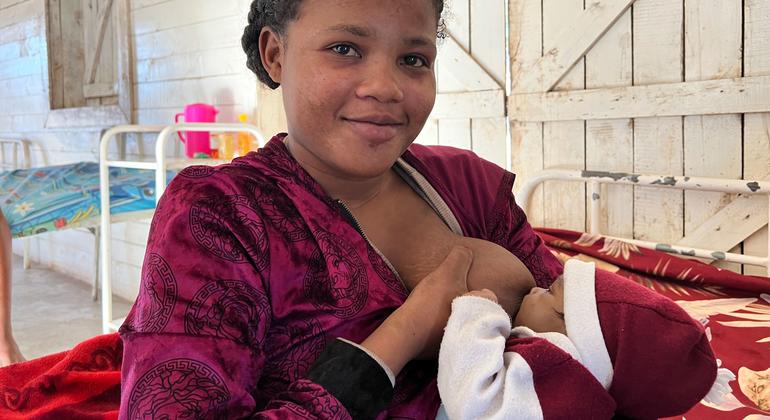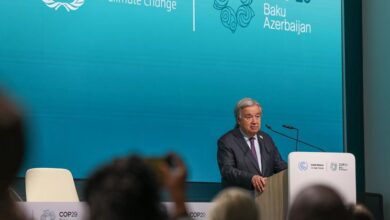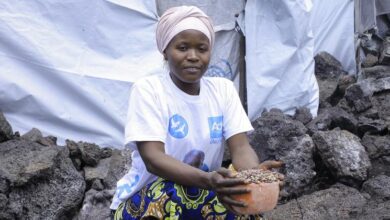Greater breastfeeding support could save the lives of 820,000 children a year, UN agencies say


UNICEF CEO Catherine Russell and WHO Director-General Tedros Adhanom Ghebreyesus made the call in a joint statement to mark the start World Breastfeeding Weekobserved annually from August 1 to 7.
“When mothers get the support they need to breastfeed, everyone benefits. According to the latest available data, improving breastfeeding rates could save the lives of more than 820,000 children each year,” they said.
Breast milk contains antibodies that protect newborns from disease and death. This is especially important in emergencies, when breastfeeding ensures a safe, nutritious and accessible food source for infants and young children.
Breastfeeding also reduces the burden of disease in children and the risk of certain cancers and non-communicable diseases in mothers.
Shortcoming
“Over the past 12 years, the number of infants under six months of age globally who are exclusively breastfed has increased by more than 10 per cent. This means that 48 per cent of babies worldwide now benefit from this healthy start in life,” the agency’s directors said.
While this represents significant progress towards achieving the WHO target of increasing exclusive breastfeeding rates to at least 50% by 2025, persistent challenges remain to be addressed.
They say an estimated 4.5 billion people – more than half the world’s population – lack access to essential health care services.
As a result, many women do not receive the support they need to breastfeed optimally, including “educated, empathetic and respectful health advice” and counselling.
Reliable data, supportive policies
“Collecting reliable data is key to addressing health inequalities and ensuring mothers and families receive timely and effective breastfeeding support,” they continued, noting that only half of all countries currently collect data on breastfeeding rates.
They added that data on policy actions that make breastfeeding possible, such as family-friendly employment policies, regulation of the marketing of breast-milk substitutes, and investment in breastfeeding, are needed.
The agency’s directors stressed that when breastfeeding is protected and supported, women are twice as likely to breastfeed and “this is a shared responsibility”.
Families, communities, health workers, policymakers and other decision-makers can all play a central role by increasing investment in programmes and policies that protect and support breastfeeding through dedicated national budgets, they said.
Other actions include implementing and monitoring family-friendly workplace policies, such as paid maternity leave, breastfeeding breaks, and access to good-quality, affordable childcare.
They also called for ensuring that at-risk mothers in emergencies or in minority communities are protected and supported in breastfeeding as part of regular health insurance coverage.




